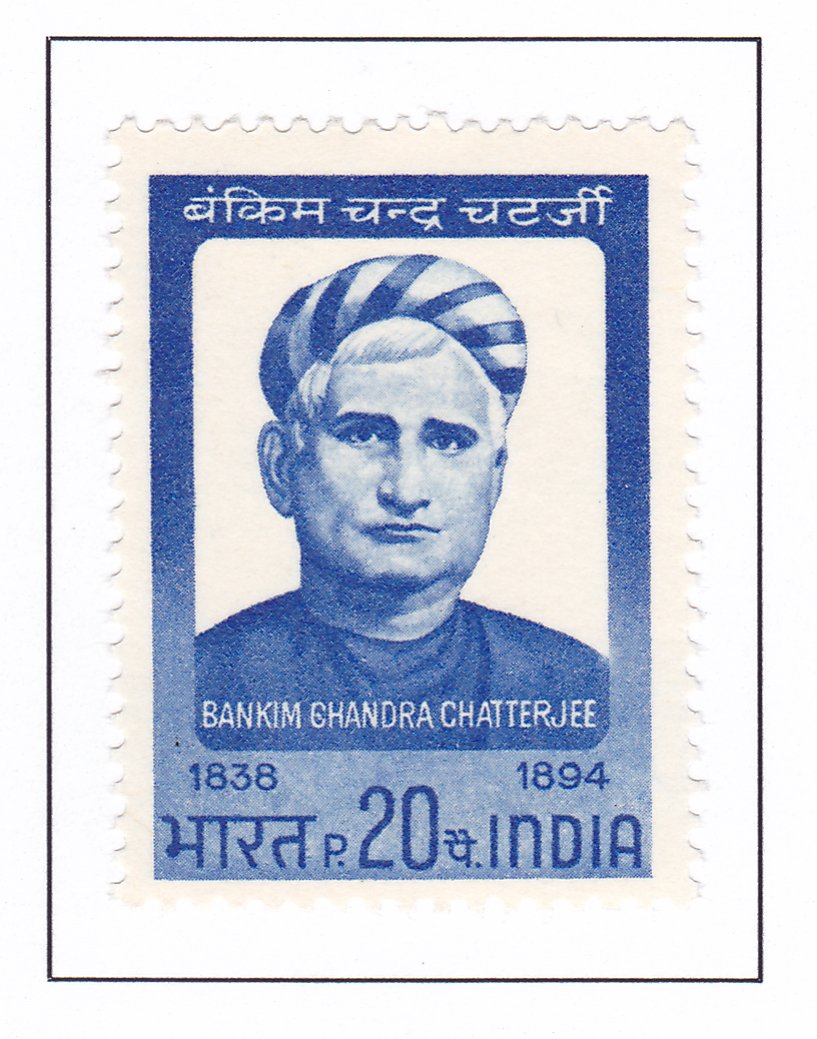Bankim Chandra Chatterjee

Technical Data
| Stamp Set | Birth Centenary |
|---|---|
| Date of Issue | January 1, 1969 |
| Denomination | 20 nP |
| Quantity | 3,000,000 |
| Perforation | comb 13½ |
| Printer | Security Printing Press, Nashik |
| Watermark | No Watermark |
| Colors | Ultramarine |
| Catalog Codes |
Michel IN 468 Stamp Number IN 484 Yvert et Tellier IN 267 Stanley Gibbons IN 582 |
| Themes | Anniversaries and Jubilees | Authors | Famous people | Headgear | Literary People (Poets and Writers) | Literature | Men |
Bankim Chandra Chatterjee, born on June 26, 1838, in Katalpara near Naihati, West Bengal, was a prominent figure in India’s literary history. Educated at Hooghly College and Presidency College, Calcutta, he was among the first graduates of the newly established Calcutta University. Initially focused on poetry, he later transitioned to fiction.
His debut novel, “Rajmohan’s Wife,” written in English, was published in 1864. However, it was his Bengali novel “Durgesh Nandini,” released in 1865, that marked a significant milestone in Indian literature. It was the first Bengali novel written in the European style and heralded a new literary era in Bengal and India.
Bankim Chandra’s subsequent novels, including “Kapal Kundala” (1866) and “Mrinalini,” were well-received, with many serialized in his magazine “Bangadarshan,” founded in 1872. His works, filled with imaginative storytelling, quickly gained popularity among readers and became household names in Bengal.
Apart from novels, Bankim Chandra wrote essays, sketches, and dissertations. From 1872 until his death in 1894, he remained a leading figure in Bengal’s literary circles. His influence extended beyond Bengal, as his novels were translated into other Indian languages, earning him a reputation across the country.
Notably, Bankim Chandra infused his writings with a spirit of patriotism, earning him a revered place in India’s struggle for freedom. His nationalist song “Bande Mataram,” featured in his novel “Ananda Math,” became immensely popular and remains widely recognized today, second only to the National Anthem.
In honor of his contributions to literature and patriotism, the Indian Posts and Telegraphs Department issued a special postage stamp in his honor on New Year’s Day, 1969. This gesture paid tribute to the enduring legacy of this great writer and patriot.
